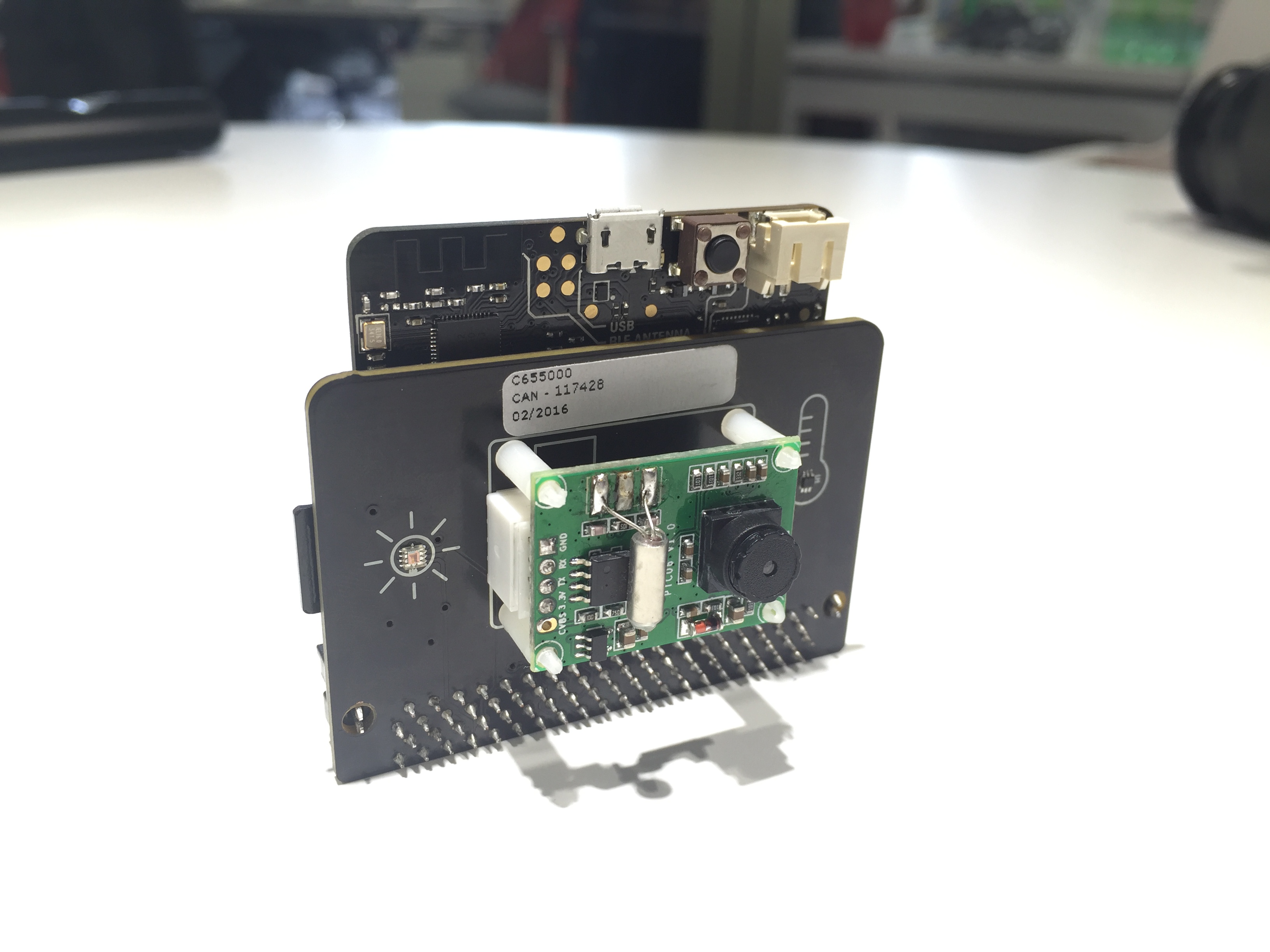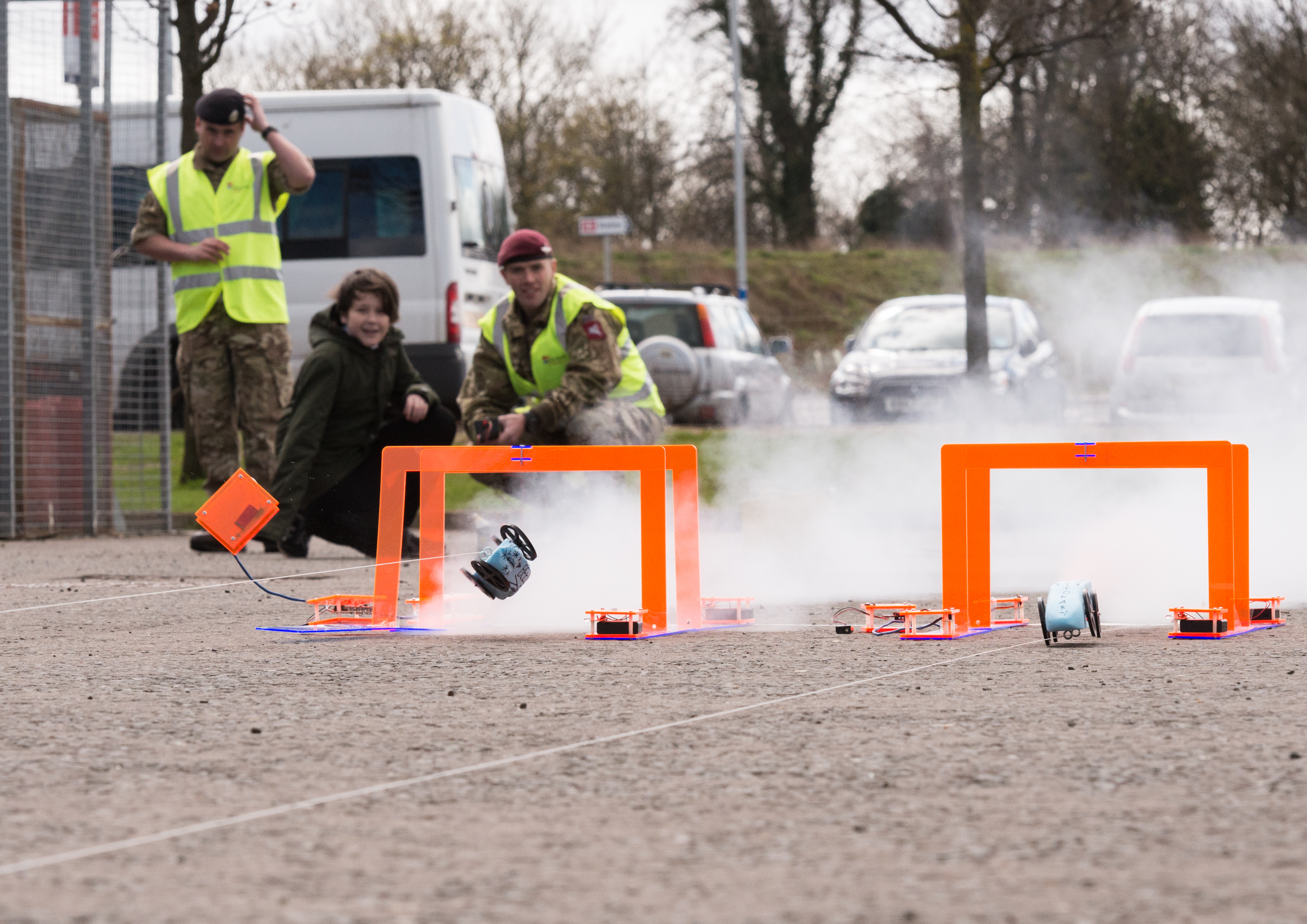
Owning your own ‘satellite’ just moved a step closer
A new experiment is set to be launched that could lead to the general public creating their own satellites.
The project will see people from across the country capture information about the world around them such as location and mapping services, weather forecasting and measuring plant and crop health. This will then be used by scientists and developers to improve our understanding of the economy and our environment.
Microsoft has teamed up with Satellite Applications Catapult, an independent innovation and technology company that has designed a Satellite MicroKit. The device can receive data on light and temperature and also features a camera and micro SD card slot, so users can save the information. The kit can be used with the BBC micro:bit, the programmable mini-computer that was made available to everyone in the UK earlier this week.
The Satellite MicroKit fitted to a BBC micro:bit
The initiative is being run by the Catapult’s UBO outreach initiative, which aims to bring satellites to the mass market.
It is hoped that the open-source community project, which also features the UK Azure User Group and is open to developers of all ages and skill levels – will increase interest in computers following the subject’s inclusion on the national curriculum in 2014.
Stuart Martin, Chief Executive of the Satellite Applications Catapult, said: “The opportunity to promote the use of satellite technology to schoolchildren is exciting, as they are the technologists of the future. The new activities include using the temperature sensor to determine the thermal conductivity of certain materials, which has many applications, for example monitoring the thermal shielding for spacecraft.
“We’re also planning a year-long experiment using Microsoft’s cloud-based Azure platform to share data captured across the country using the Satellite MicroKit.”
Microsoft is helping the Catapult develop the first kit as well as lending after-care services such as access to Azure cloud services and technical advice.
The BBC micro:bit has already been handed to 800,000 youngsters across the UK free of charge, and been used to build watches, stepometers and musical instruments.
The micro:bit features 25 red LED lights that can flash messages, while there are also two programmable buttons that can be used to control games or pause and skip songs on a playlist. The device can also detect motion and tell you which direction you’re heading in, and it can use a low energy Bluetooth connection to interact with other devices and connect to the internet.
Pupils at Eastlea Community School, in London, programmed it to keep a small aircraft on course, while children at Highgate School, also in the capital, used it to help autism sufferers recognise emotions.
“We believe that the BBC micro:bit is a foundational programme that will support a new generation of digital makers,” said Michel Van der Bel, Managing Director of Microsoft UK and Vice President of Microsoft International.
Schoolchildren built rocket cars using the BBC micro:bit
“That’s exactly why we are helping to extend the project by making it available through the Microsoft store. We want everyone beyond Year 7 to have the opportunity to own a BBC micro:bit and we are proud to be providing the programming capabilities for all the friends, families, clubs and schools who choose to buy one.”
In April, the BLOODHOUND Project – an international education initiative focused around a 1,000mph world land speed record – partnered with Microsoft, The British Army, Buckingham Palace and a number of other organisations to run a national competition inviting every UK school to use the BBC micro:bit to build a rocket car.
Pupils used the device to capture real-time data from their vehicles and download it using a Microsoft Office add-on. Using this data, the students tweaked their designs to make their car go as fast as possible.
A national competition will be held on July 5 at the Santa Pod Raceway in Northampton.
The top three fastest teams will be the overall winners of the national competition and receive a cash prize for their schools. The overall winning team will win a trip to Newquay to watch Bloodhound professionals launch a real rocket.
The BBC micro:bit is available to buy now from the Microsoft store, priced at £12.99.



